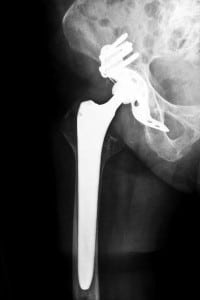
The Zimmer Kinectiv hip replacement device is one type of metal-on-metal hip replacement option that exists today. Despite the benefits of these devices, complications arise that are caused by a defect in the design or manufacture of the device. These complications may often result in pain, loss of mobility, and even the need for additional surgery for the patient. The Zimmer Kinectiv hip replacement has been the subject of a recall, and it is expected that an Ohio Zimmer Kinectiv lawsuit may be filed on behalf of affected patients who have suffered pain and injury as a result of a hip replacement procedure.
If you or a loved one is experiencing problems with a Zimmer hip implant or any metal-on-metal hip replacement, contact Attorney Group for Ohio today. We provide free, confidential, no-obligation consultations, and if you have case we can connect you with an affiliated Zimmer Kinectiv lawsuit attorney who can assist you throughout the legal process. The time to pursue a claim is limited, so contact us today.
When Is The Zimmer Kinectiv Prostheses Used?
This medical device might be used to perform a total hip replacement. Many patients have a total hip replacement performed when they experience severe hip pain or disability due to traumatic arthritis, polyarthritis, rheumatoid arthritis, congenital hip dysplasia and other disorders of the hip.
The second situation in which the Zimmer Kinectiv hip replacement device might be used is when a hemi-hip replacement is needed. Patients who are elderly, who experience fracture dislocation of the hip and who experience osteoarthritis where the femoral head of their hip is affected may be good candidates for a hemi-hip replacement.
Complications With Metal-On-Metal Hip Implants
There are over 400,000 hip replacement surgeries performed in the U.S. every year, and 27 percent involve a metal-on-metal device. Between 1999 and 2012, the U.S. Food and Drug Administration (FDA) received nearly 17,000 reports of complications associated with these devices, and 12,000 were reported in 2011 alone.
Hip revision surgery is a type of operation designed to correct problems with a hip replacement so that the hip is able to function in a normal manner once again. Although pain relief is the main purpose of this type of surgery, certain risks are still involved during these operations. For example, during some operations, unforeseen complications, such as cardiac or respiratory malfunction, may develop due to the use of anesthesia. Additionally, once the surgery is over, patients may experience weakness or instability in the hip joint or experience injury to their blood vessels and nerves.
Zimmer Kinectiv M/L Taper Recall
In addition to these potential complications that may occur from a metal-on-metal hip replacement, the FDA has also issued a Class I recall on the Zimmer M/L Taper with Kinectiv technology prosthetics. This type of recall is the most serious, indicating that there is a significant likelihood of severe adverse events. According to the FDA, patients who underwent hip replacement surgery that involved the use of a recalled Zimmer Kinectiv device may experience adverse health consequences, such as pain, infections and allergic reactions as a result of this hip replacement option. In some situations, patients may have to undergo revision surgery to replace the affected implant. These medical devices left the factory with contaminants from the manufacturing process still on them, and while the FDA does not clarify the nature of the substances, the agency warns that they could cause very serious reactions and complications.
How An Ohio Zimmer Kinectiv Lawsuit Can Help

Device makers have a duty to design and produce safe products, and to warn of possible risks associated with their products. Failure to fulfill that duty can result in injuries to patients, and the device maker being held liable for those injuries.
Patients who are injured by metal-on-metal hip replacements may be entitled to compensation for damages resulting from injuries. Compensation can be based on factors including:
- Past and future medical expenses
- Pain, suffering, and mental anguish from an injury
- Loss of income or ability to work due to loss of mobility
If a loved one dies after complications from a metal-on-metal hip implant, family members may be able to pursue claims for wrongful death damages, including:
- Conscious pain and suffering of a loved one prior to death
- Loss of financial support
- Pain, suffering, and mental anguish resulting from the loss of a loved one
Affected patients and their families are encouraged to seek the advice of an Ohio Zimmer Kinectiv lawsuit attorney to discuss their legal rights and options for compensation.
Contact Us For More Information
If you have been injured by a metal-on-metal hip replacement, or to find out more about an Ohio Zimmer Kinectiv lawsuit, contact Attorney Group for Ohio. You can fill out the form on this page, call us at the number listed at the top of the page, or email us at info@attorneygroup.com.
When you contact us, an attorney will follow up with you to speak with you about your case or answer questions that you might have. There is no cost or obligation to speak with us, and any information you provide will be kept confidential.
Please note that the law limits the time you have to pursue a claim for an injury. If you think you have a case, you should not delay taking action.
See our Frequently Asked Questions page for more information, and contact Attorney Group for Ohio today.





